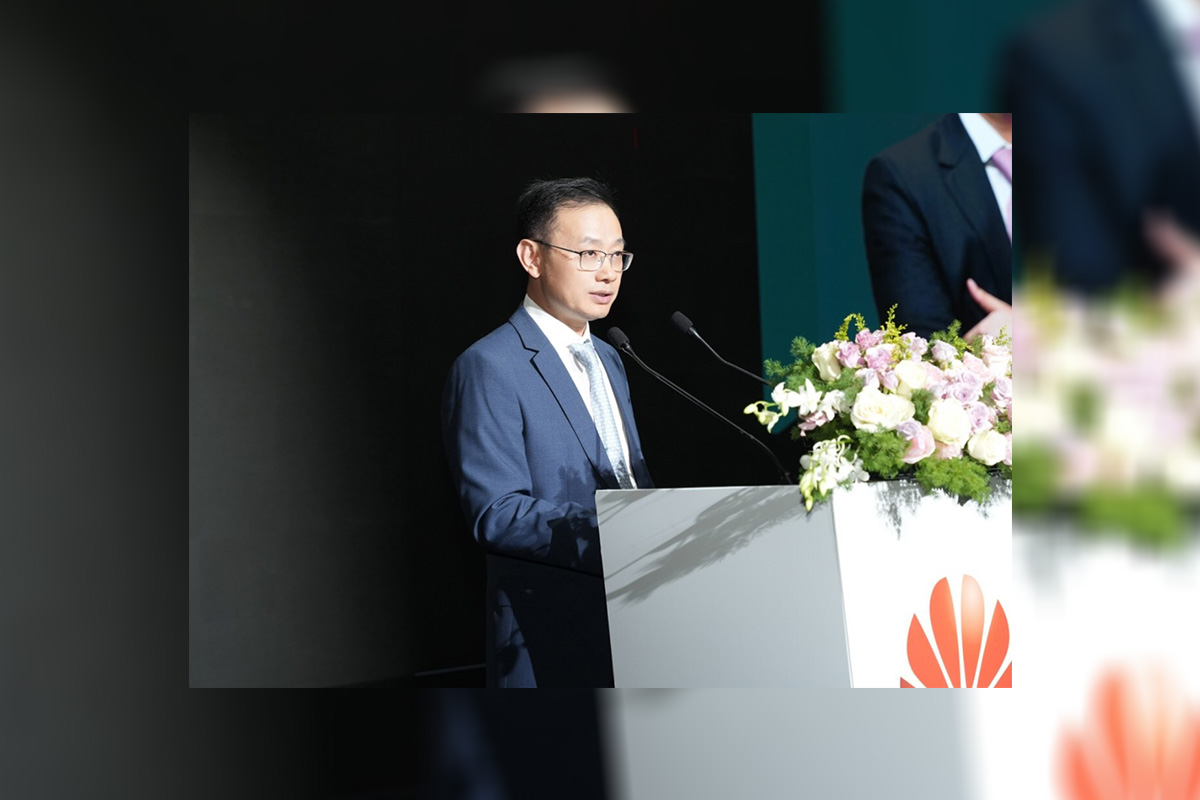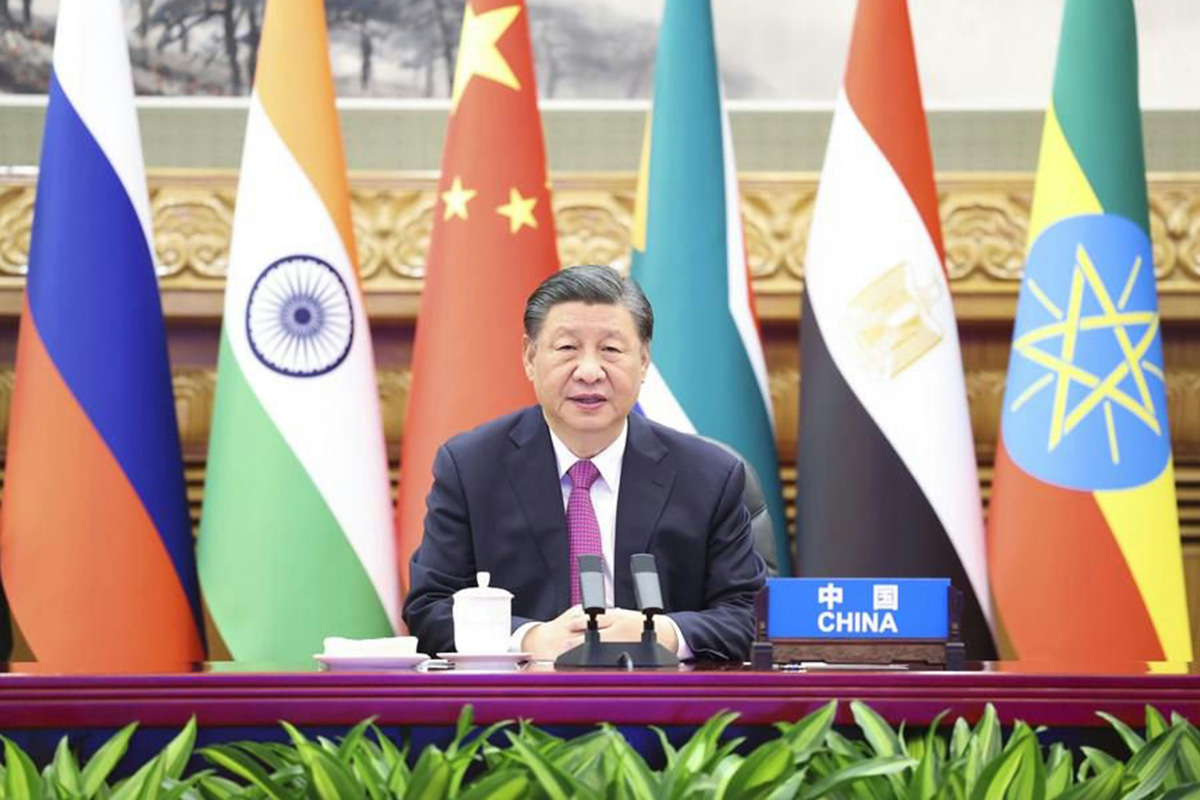Uncategorized
Internal audit’s role in the new European Union’s Artificial Intelligence Act

Understanding the European Union Artificial Intelligence Act
The European Union’s Artificial Intelligence (AI) Act is a pioneering regulation designed to establish and harmonize comprehensive rules for the development and use of AI systems across the EU. As AI technologies become increasingly integral to organizational operations, this regulation aims to ensure that AI development aligns with the EU’s human-centric values and fundamental rights. Internal auditors will be crucial in helping organizations understand the risks and opportunities associated with AI and navigating the complex regulatory landscape.
Scope and Applicability
The EU AI Act clearly defines AI systems, encompassing machine learning, logic-based and knowledge-based approaches, and systems capable of inference from data. Internal auditors must ensure their organizations’ AI systems align with or can be mapped to these definitions. Understanding these distinctions is the first step in providing assurance and insights related to compliance.
Embracing a Risk-Based Approach
The EU AI Act categorizes AI systems based on their risk to health, safety, and fundamental human rights. Internal auditors should first ensure that their organizations are not engaging in prohibited AI practices, such as subliminal, manipulative, and deceptive techniques, discriminatory biometric categorization, or expanding facial recognition databases through untargeted scraping of images. Identifying, understanding, and assessing high-risk AI systems, especially those used in critical areas like healthcare, law enforcement, and essential services, is vital.
Meeting Mandatory Requirements for High-Risk AI Systems
High-risk AI systems are subject to stringent requirements under the AI Act. Internal auditors must ensure robust risk management systems are in place, including processes for identifying, assessing, and mitigating risks associated with high-risk AI systems. Assessing the organization’s data governance structures and processes is essential to ensure high-quality data usage, appropriate documentation, and compliance with record-keeping practices. Key considerations for auditors include:
Data sources
Effectiveness of data production processes and controls
Data completeness, accuracy, and reliability
Usage of data by the AI system
Ensuring Compliance and Continuous Monitoring
Compliance with the EU AI Act requires continuous monitoring of AI systems. Internal auditors must verify that high-risk AI systems undergo regular assessments and understand when external evaluations are necessary. They should also ensure that proper mechanisms for continuous monitoring, including incident reporting and timely corrective actions, are in place. A proactive approach helps address potential risks and maintain compliance throughout the AI systems’ lifecycle.
Upholding Human Oversight
Human oversight is a critical aspect of the EU AI Act to prevent unintended consequences and maintain trust in AI systems. Internal auditors should ensure that AI systems are designed to enhance human decision-making and that measures for human control are included throughout. Verifying that users of AI systems are adequately trained to understand and manage these complex systems is also essential.
Biometric Data
The EU AI Act imposes specific restrictions on using biometric data and remote biometric identification systems. Internal auditors must ensure compliance with these restrictions and limit the use of biometric data to permitted scenarios, such as security or authentication. Specific rules govern the use of remote biometric identification systems, especially in public spaces and for law enforcement. Auditors need to understand and verify compliance with the rules applicable to their organization.
Ethical Considerations and Fundamental Rights
The EU AI Act emphasizes ethical considerations and the protection of fundamental rights. Internal auditors should evaluate whether AI systems are developed and used in a non-discriminatory manner, promoting equality and cultural diversity. Key areas for auditors to consider include privacy, data protection, freedom of expression, and non-discrimination.
Documentation and Reporting
Comprehensive documentation and reporting are crucial for demonstrating compliance with the EU AI Act. Internal auditors should ensure that detailed technical documentation is maintained for all AI systems, providing a clear trail of their development, functioning, and compliance measures. Additionally, auditors should verify that their organizations meet regulatory reporting obligations, including incident reporting and annual compliance statements.
Source: wolterskluwer.com
The post Internal audit’s role in the new European Union’s Artificial Intelligence Act appeared first on HIPTHER Alerts.
Uncategorized
GITEX GLOBAL 2024 | Huawei’s Global Optical Summit: Accelerate F5G-A, Amplify Intelligence

During GITEX GLOBAL 2024, Huawei Global Optical Summit was successfully held in Dubai, UAE. Themed “Accelerate F5G-A, Amplify Intelligence”, the summit attracted more than 300 industry experts, customers, and partners from many countries around the world. At the summit, focusing on the “3 In 3 Out” trends, Huawei released a series of F5G Advanced (F5G-A) products for the Middle East, Central Asia, and Africa.
“The Middle East and Central Asia are the pace-setters for digital economy growth across the world.” Said Steven Yi, President of Huawei Middle East and Central Asia Region. “Having engaged in the Middle East and Central Asia for more than 20 years, Huawei has continuously contributed to local economic and social development with its digital infrastructure, including optical networks. In the intelligent era, optical networks are facing new development opportunities. With the advantages of ultra-high bandwidth, high reliability, and green development, optical networks will play a greater role in industrial intelligence in home, campus, industry production network, and sensing fields. Huawei will work with customers and partners to promote the application of optical technologies in the industry and accelerate the digital and intelligent transformation of various industries.”
Bob Chen, President of Huawei Optical Business Product Line, pointed out in his keynote speech that the next decade will be an intelligent one in which the optical industry will face new opportunities of “3 In 3 Out”. For intelligent connectivity, homes and campuses are evolving from gigabit to 10G as optical fibers replace copper cables. This trend has been dubbed “Fiber-in Copper-out”. Moreover, on the industry communications networks of industries like electric power and transportation, SDH is evolving to fgOTN at an increasing pace, which is called “fgOTN-in SDH-out”. For intelligent sensing, in scenarios such as oil and gas pipeline inspection and perimeter inspection, manual onsite operations will be replaced by remote operations. This will require converged sensing such as vision and fiber sensing, which is a trend called “Optical-sensing-in Hard-work-out”.
Focusing on the “3 In 3 Out” trends, Huawei is dedicated to developing innovative products and solutions.
In the ” Fiber-in Copper-out ” campus scenario, Huawei has updated its FTTO 2.0 solution by launching OptiXstar P884E, the industry’s first high-density 10G optical terminal, achieving 25G coverage. Four Huawei OptiXstar series Wi-Fi 7 optical terminals and optical gateways are released for hospitals, hotels, and education networks to develop new standard configuration for digital and intelligent Wi-Fi 7 campuses.
“fgOTN-in SDH-out” scenario, Huawei launched OptiXtrans E6600/9600 — the industry’s first optical transmission product portfolio that offers E2E support for the fgOTN standard, building solid and reliable communications networks for industries such as electric power and transportation.
In terms of “Optical-sensing-in Hard-work-out”, Gavin Gu, President of Huawei’s Enterprise Optical Network Domain, delivered a keynote speech. Gu noted that Huawei has launched the buried optical cable inspection solution to implement proactive warning of cable damage events, achieving an alarm accuracy of 95%, which is industry-leading. This ensures the security of important communications cables for ISPs, carriers, and governments. In addition, Huawei launched the lightweight perimeter inspection solution, which extends the perimeter inspection capability of optical fiber sensing to small-scale campus scenarios such as substations, oil and gas stations, and data centers.
Looking ahead, Huawei will continue to innovate and work with all global customers and partners to seize new “3 In 3 Out” opportunities, and to accelerate industrial intelligence, achieving win-win results in the intelligent era.
The post GITEX GLOBAL 2024 | Huawei’s Global Optical Summit: Accelerate F5G-A, Amplify Intelligence appeared first on HIPTHER Alerts.
Uncategorized
Appian Names Mark Dorsey Chief Revenue Officer

Appian (Nasdaq: APPN) today announced the appointment of Mark Dorsey as Chief Revenue Officer. Dorsey will lead the company’s global sales operation to accelerate growth, including through direct sales and partnerships. He will report to Appian’s CEO, Matt Calkins.
“I’m thrilled to join Appian and collaborate with the entire team to accelerate growth,” said Mark Dorsey, Chief Revenue Officer, Appian. “I look forward to partnering with our customers to ensure their success using Appian’s trusted process automation technology to transform their organizations.”
Dorsey brings over 25 years of experience leading sales teams in cloud and SaaS companies, with executive roles at Oracle, IBM, and most recently Alteryx. At Oracle, he served as SVP of Enterprise Cloud Sales, where he was instrumental in launching Oracle’s cloud business and transitioning the sales organization from an on-premise focus to cloud-based solutions. He also led the cloud business for Oracle’s top 1,000 North American accounts, driving strategic initiatives and building long-term customer relationships. After leading the cloud team, Dorsey led the Retail Vertical, driving growth in cloud, on premise software, and hardware as the SVP of the Retail Vertical for North America. In an earlier role, Dorsey led Oracle’s Retail and Healthcare Verticals within the Technology Division for North America, where he managed sales for both sectors and oversaw key areas such as database, middleware, business intelligence, and cloud platform services.
“I’m excited to welcome Mark to Appian,” said Matt Calkins, CEO. “He’s a natural leader with a talent for creating high-performing, scalable teams.”
In addition, Appian is reaffirming its guidance for the third quarter of 2024 and full year ending December 31, 2024, previously provided in its Q2 earnings release and conference call on August 1, 2024.
The post Appian Names Mark Dorsey Chief Revenue Officer appeared first on HIPTHER Alerts.
Uncategorized
To get greater BRICS cooperation off to good start

A report from People’s Daily: The 16th BRICS Summit will be held in Kazan, Russia, from Oct. 22 to 24. This upcoming summit is the first to be held after the BRICS expansion, playing a prominent role in getting the greater BRICS cooperation off to a good start. It is also important for BRICS countries to unite the Global South and play a greater role in international affairs. Chinese President Xi Jinping will attend the 16th BRICS Summit.
“More than 30 nations have formally applied to join BRICS.” With its rising global influence, the BRICS cooperation mechanism has become a focus of media around the world. The increasing number of developing countries applying to join the BRICS family fully demonstrates the vitality and appeal of the BRICS cooperation mechanism.
Since its inception, BRICS countries have consistently acted on the BRICS spirit of openness, inclusiveness, and win-win cooperation, and taken BRICS cooperation to new heights. They have upheld fairness and justice in international affairs, stood up for what is right on major international and regional issues, and enhanced the voice and influence of emerging markets and developing countries. Faced with the current complex international situation, the Global South countries increasingly rely on the BRICS.
Under the suggestion of China, the BRICS expansion process was initiated during the 14th BRICS Summit held in Beijing in 2022. At the 15th BRICS Summit held in Johannesburg, South Africa in 2023, the BRICS achieved a historic expansion. Earlier this year, Egypt, the United Arab Emirates, Iran, and Ethiopia officially became members of the BRICS family.
The new round of expansion has further enhanced the global representation and influence of the BRICS mechanism, making it a more important force in shaping the international landscape.
Last November, leaders of BRICS countries joined the Extraordinary Joint Meeting of BRICS Leaders and Leaders of Invited BRICS Members on the Situation in the Middle East with Particular Reference to Gaza, to coordinate positions and actions on the Palestinian-Israeli conflict.
This year, the 14th BRICS Trade Ministers Meeting and the 14th Meeting of the BRICS high-ranking officials responsible for the security matters and national security advisors were held successively to build more consensus for cooperation, safeguard peace and stability, and seek common development and revitalization.
On multilateral platforms such as the United Nations (UN) and the G20, the BRICS countries have jointly defended the rights and interests of emerging markets and developing countries.
The world today is experiencing disorder, slowing growth, uneven development, and a loss of focus in governance. In the face of increasingly complex and challenging international situations, the greater BRICS cooperation bears greater responsibilities and higher expectations.
The greater BRICS cooperation will continue to promote common security and strive for lasting peace. The BRICS countries will support each other on issues concerning their respective core interests, and enhance coordination on major international and regional issues.
China and Brazil have jointly released the six-point consensus on the common understandings on the political settlement of the Ukraine crisis, which has received positive responses from more than 110 countries.
On the Palestinian question, the BRICS countries emphasize the need to push for the early realization of a comprehensive and lasting ceasefire in Gaza, support Palestine’s full UN membership, and implement the two-state solution.
The greater BRICS cooperation will focus on development as a priority and remove hindrance to development. The membership expansion has contributed to a wider-ranging, broader, and higher-quality cooperation among BRICS countries. By revitalizing the cooperation outcomes and unlocking new cooperation potential, the countries are committed to leveraging the opportunities brought by technological revolution and industrial transformation to nurture new drivers for high-quality development and create new landmark achievements in areas such as finance, artificial intelligence, energy, and minerals.
The greater BRICS cooperation will follow true multilateralism and improve global governance. The BRICS expansion has further increased the representation of the BRICS family on the global stage, which will expand the topics of global governance joined by BRICS countries and improve their governance capabilities. The upcoming BRICS summit has once again focused on multilateralism, demonstrating the confidence and determination of BRICS countries in upholding multilateral cooperation.
Currently, the Global South accounts for over 40 percent of the world economy, profoundly reshaping the global economic landscape. As the leading members of the Global South, the BRICS countries are working for greater solidarity and cooperation among countries of the Global South. Together, they have stayed true to the fundamental aspiration of upholding the common interests of the Global South and pushing for a more balanced and effective global governance.
At a new starting point, the strategic significance and political effects of the greater BRICS should be fully leveraged to make BRICS a new type of multilateral cooperation mechanism based on emerging markets and developing countries, and open and inclusive to the world.
China has been a consistent advocate of and contributor to BRICS cooperation. As Chinese President Xi Jinping pointed out, BRICS countries gather not in a closed club or an exclusive circle, but a big family of mutual support and a partnership for win-win cooperation. They need to uphold openness and inclusiveness and pool collective wisdom and strength, which meets the realistic needs of BRICS development and serves the common interests of all BRICS countries.
Building on a solid foundation, the greater BRICS cooperation is bound to embrace a bright future. Moving forward, China stands ready to strengthen strategic partnerships with all BRICS partners, get the greater BRICS cooperation off to a good start, and build a community with a shared future for mankind, so as to make greater contributions to the development and progress of human society.
SOURCE People’s Daily
The post To get greater BRICS cooperation off to good start appeared first on HIPTHER Alerts.
-

 Artificial Intelligence5 days ago
Artificial Intelligence5 days agoInternational experts hail GITEX GLOBAL 2024 as world’s largest & best-rated tech event signs off
-

 Artificial Intelligence7 days ago
Artificial Intelligence7 days agoAccelerating AI advancement: Abu Dhabi’s innovation champions & tech pioneers shine bright at GITEX GLOBAL 2024
-

 Artificial Intelligence7 days ago
Artificial Intelligence7 days agoPhishing Protection Market Size Worth $5.94 Billion, Globally, by 2031 – Exclusive Report by The Insight Partners
-

 Artificial Intelligence7 days ago
Artificial Intelligence7 days agoSmartRecruiters Unveils Winston: AI That Keeps Hiring Human
-

 Artificial Intelligence5 days ago
Artificial Intelligence5 days agoWonderful Appearance of Inspur at GITEX IMPACT 2024
-

 Artificial Intelligence5 days ago
Artificial Intelligence5 days agoBE OPEN launches DESIGNING FUTURES 2050: international competition for young creatives focused on the UN Sustainable Development Programme
-

 Artificial Intelligence5 days ago
Artificial Intelligence5 days agoUnlocking business potential: GITEX GLOBAL 2024 fulfils cross-continental collaboration promise in record-breaking edition
-

 Artificial Intelligence7 days ago
Artificial Intelligence7 days agoEightfold AI Announces its Strategic Leadership Position in 2024 Fosway 9-Grid™ for Talent & People Success
















